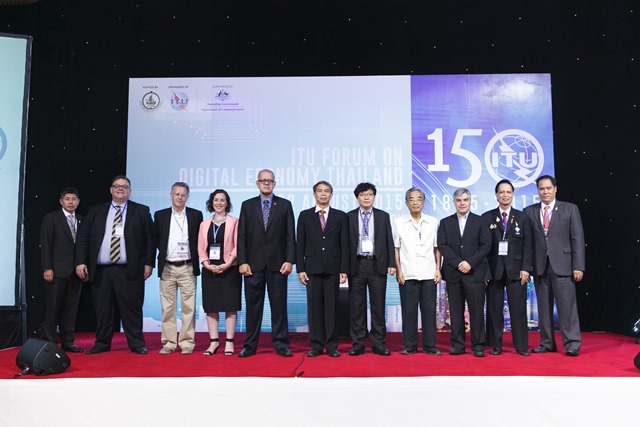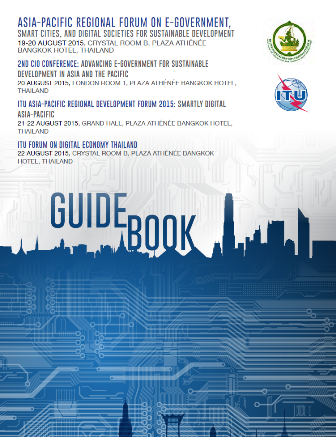
Context
The Royal Thai Government has pledged to promote the digital economy in order to modernize the country for the benefit of all aspects of the Thai economy recognizing that digital technologies enable people all over the world to connect without borders and to have easier and quicker access to information through the Internet. Thailand’s digital economy and society framework is based on five supporting pillars.
1) Hard Infrastructure: focuses on reliable networks with enough capacity, coverage and suitable pricing are prerequisite to economic and social development. The national broadband initiative proposes to pool together existing network resources that belong to state enterprises, government agencies, as well as private companies for more efficient resource planning and usage. Moreover, hard infrastructure also aims to increase investments in data centers as well as to increase international gateway capacity.
2) Service Infrastructure: refers to infrastructure that enables service innovations in both government and business sectors. This pillar promotes service platforms that will allow data from multiple sources to be linked and mashed-up to create innovative services. Government data will be open and integrated through government service platform with the goal to provide paperless, one-stop, citizen-centric services. For example, this will eliminate traditional requirements of using hard copies of citizen ID and house registration.
3) Soft Infrastructure: refers to the underlying processes to guarantee secure and trusted digital transactions. New laws and regulations are being created, while the existing ones are being updated — especially to improve user privacy protection and data security. In addition to electronic transaction promotion, this pillar also addresses trade facilitation with an electronic document exchange system.
4) Digital Economy Promotion: aims to boost the Thai economy through a vibrant digital business ecosystem. Digital technologies will transform how Thai businesses of all sizes operate— especially the SMEs, from competing for prices to creating new value for products and services that will satisfy customers. Digital commerce as well as digital marketing are important tools to bring the SMEs and OTOP products into market. Also, capacity building in the area of digital entrepreneurship, e-commerce, and digital marketing are necessary to achieve a long-term economic growth.
5) Digital Society Promotion: In order for Thailand to become a digital society, everyone — especially the less privileged groups — should have easy access to information as well as public services via digital means. Such equal access can be achieved by means of universal design and digital inclusion projects. In addition, it envisions a digital society where all citizens can learn throughout life and also become media and information literate.
Forum & Objectives
The Ministry of Information and Communication Technology, the Government of Kingdom of Thailand and the International Telecommunication Union (ITU) are jointly organizing “ITU Forum on Digital Economy Thailand” to be held on 22nd August 2015 at Plaza Athénée Bangkok Hotel, in conjunction with the ITU Regional Development Forum 2015.

Download  "Forum Programme Guidebook" (full version)
"Forum Programme Guidebook" (full version)
Download  "Forum Programme Guidebook" (lite version)
"Forum Programme Guidebook" (lite version)
The ITU Forum on Digital Economy Thailand is aimed to:
Share countries’ experiences in promoting digital society and economy from various aspects;
Promote the Thai government’s efforts in stimulating social and economic development through the use of telecommunications and ICTs;
and,
Provide a platform for people networking thereby exchanging knowledge and experience.
To register for the event, click HERE for online registration. Or contact Ms. Wachira Woramanakul, Email: wachira.woramanakul@itu.int